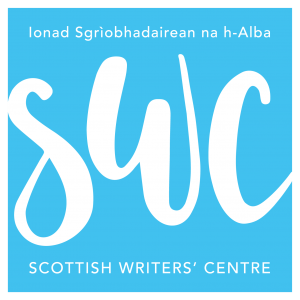… Four Nonfiction Books We Enjoyed in 2016

Fiction and nonfiction often seem to me to be very different things, even though both are created and consumed in the same way, through writing and reading. They accomplish totally separate tasks in my life: fiction is an encounter with the beauty and joy of language, whereas nonfiction is about the pleasure of learning stuff. Literary fiction is sometimes considered to be more morally worthy for the reader than nonfiction, the enjoyment of which brings to mind Thomas Gradgrind and his puritanical obsession with ‘sticking to the Facts’. The following four books are a testament to the fibrous value of nonfiction in a reading diet.
D.T Max, Every Love Story is a Ghost Story
The late David Foster Wallace is one of my literary fascinations; like many, I became acquainted with him through his essays and short stories. Once enamoured, I consumed his encyclopedic masterpiece Infinite Jest. This literary biography is one of the best of its kind. It doesn’t pander to the cult of personality that has grown around Wallace since his death in 2008, which too often glorifies parts of Wallace’s personality that made his life difficult and eventually unbearable. It also explores Wallace’s artistic influences, from the obvious- Pynchon, DeLillo, Wittgenstein- to the less so- Derrida, Stephen King, C.S Lewis. As well as telling the ‘ghost story’ of Wallace’s life, this is an excellent critical and biographical introduction to his opus for the newly-intrigued and already-enamoured alike.
Andrew Nikiforuk, The Energy of Slaves
It is often said, these days, that the age of political grand narratives is over. No one issue or creed explains all that is happening in our postmodern world; it is often felt we are living in the end times. I suspect that, as human beings, viewing ourselves as being already at the end of something is part of our grand cosmic arrogance. Really, things are just getting started, and many things, good and bad, are still possible. In The Energy of Slaves, Nikiforuk discusses the political, social and environmental ills of the 21st century in light of our relationship with energy, which has radically changed in the last few hundred years. Problems like inequality, climate change, overcrowding and even society-wide depression are all a result of our dependence on fossil fuels, the use of which wildly alters our existence. This book is like a scientifically informed philosophical treatise and could be said to offer an epic narrative to answer our malaise of meaning. If I could suggest any reading material to the new president-elect, who does not believe in climate change, it would be this.
Jonathan Crary, 24/7
This book is short, but provocative. Crary argues that capitalism is eroding the place of sleep in modern life, which in his eyes provides a final bastion against the forces of the market, because people who are asleep cannot consume. In a particularly fascinating passage he discusses the implications of drone warfare for certain tribes, who had traditionally observed a ceasefire at night, but now find that the sanctity of rest and darkness is not respected in modern fighting. Using laptops and phones late into the night and early in the morning is another way in which sleep is threatened, as the forces of online shopping and social media invade the traditional space of respite. Perhaps the most beneficial thing about reading this book was that it strengthened my belief that doing nothing can indeed be a revolutionary act.
Rory Stewart, The Places In Between
I am painfully aware that the books I have selected for this list are archaically white and male, a fault which is entirely my own and no reflection of the quality of nonfiction being produced by non-white non-males (of course). Rory Stewart does offer proof of some diversity in my reading tastes, however- he is a front bench Conservative MP, and so part of a tribe that is very different from my own. This book tells of his time spent walking across Afghanistan in 2002. You might expect from his background that Stewart would write something self-aggrandising and ‘manly’, but his prose is simple and affecting, and his attitude one of humility. I reserve some skepticism about the whole genre of wealthy-British-man-goes-to-scary-foreign-country-and-miraculously-survives stories, but this book isn’t too bad for it, and what it does is make starkly clear the hopelessness, in a pragmatic sense, of heavy-handed political intervention in the Middle East. The massive and complex differences in culture between the villages that Stewart walks through make it obvious that attempting to superimpose democracy on Afghanistan was in a way a naive endeavour. I disagree with Stewart’s politics, but I think his commitment to understanding people first-hand, by travelling on foot and staying with them, is something that politicians of all varieties should emulate.
Words by Donald Marshall.



